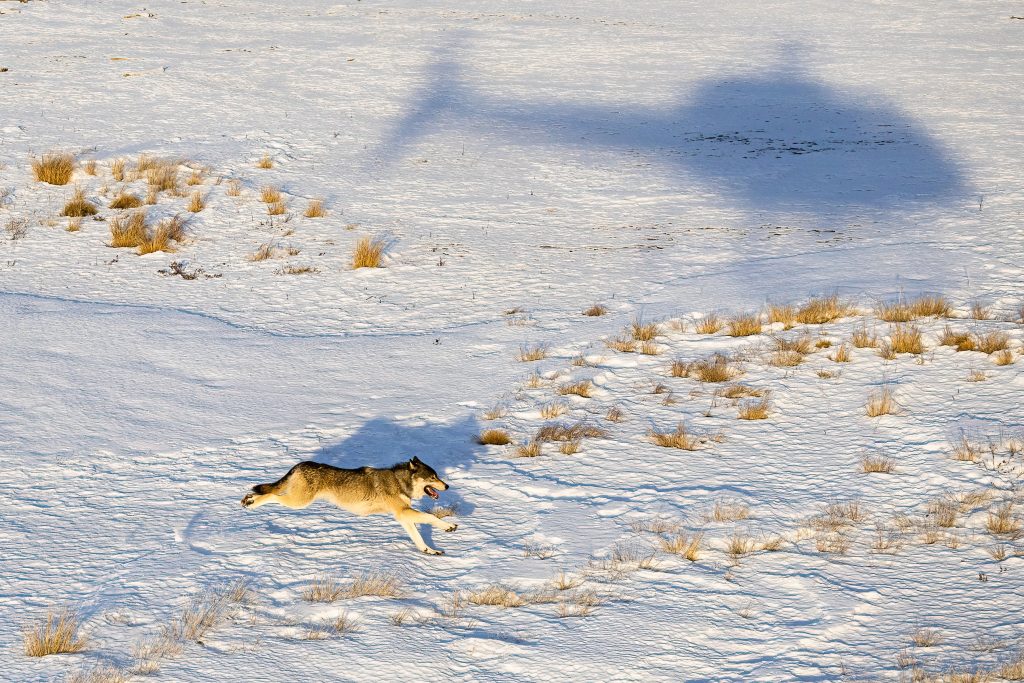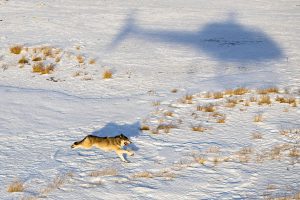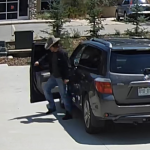Citizen group breathes second life into ballot initiative seeking an end to wolf reintroductions by 2026
Colorado Advocates for Smart Wolf Policy resubmitted its ballot initiative after failing to collect enough signatures the first time

Colorado Parks and Wildlife (CPW)
After failing to collect enough signatures in its first attempt, a citizen group is rebooting an effort to get a measure ending Colorado wolf reintroductions on the state’s November 2026 ballot.
On Friday, Sept.12, Colorado Advocates for Smart Wolf Policy filed draft ballot language with the Colorado Legislative Council — the first step toward getting a citizen initiative on a ballot in Colorado.
The measure will need to be approved by the Title Board and collect around 125,000 signatures from Colorado registered voters to make it on the 2026 ballot.
Patrick Davis, Smart Wolf Policy’s lead organizer, said the language is identical to what was previously submitted and approved by the Title Board this spring.
The ballot measure proposes ending the state’s reintroduction of gray wolves by Dec. 31, 2026, and prohibiting the importation of wolves into Colorado. It would also seek to remove the classification of gray wolves as “non-game” wildlife and list livestock guard and herding animals in statute within the states’ depredation compensation programs.
In its first attempt, Colorado Advocates for Smart Wolf Policy fell short of the requirement to make it on the ballot by around 100,000 signatures.
Davis said that a lack of funds was what led to the inability to collect the required signatures by its Aug. 27 deadline. He claimed that around $1 million was needed to collect enough signatures.
This fundraising was further hindered by opposition to the measure from a coalition of northwest Colorado commissioners and agriculture groups, Davis claimed. The coalition claimed that the initiative failed to get input from the stakeholders most affected by Colorado’s reintroduction efforts and ran contrary to the outcomes landowners and producers were angling for.
According to the secretary of state’s campaign finance database, Colorado Advocates for Smart Wolf Policy had raised $38,897 as of July 15 and spent just over $30,000.
In this second attempt, Davis said the group is “engaging early with stakeholder groups and major donors in and out of Colorado to raise the resources necessary to get this initiative on the ballot.”
Colorado’s reintroduction of gray wolves began with a citizen-led ballot initiative in 2020. Voters approved Proposition 114 by a margin of 56,986 votes, requiring Colorado Parks and Wildlife to create a plan to reintroduce and manage gray wolves. It required the agency to release wolves by Dec. 31, 2023.
The resulting wolf management plan recommended Colorado release between 30-50 wolves in three to five years. Parks and Wildlife has released 25 wolves in the first two years of the restoration effort, and is planning to do at least one more release of wolves this winter.
Colorado Advocates for Smart Wolf Policy has cited escalating costs of the wolf program, growing conflict between livestock and wolves and how Parks and Wildlife is managing the conflict as reasons no more wolves should be released after 2026.
Multiple attempts have now been made to pause or halt the release of additional wolves in Colorado.
Most recently, Western Slope legislators failed to mandate a one-year pause in a special session budget bill. This week, a group of 29 agricultural groups and elected officials announced they filed a petition with Parks and Wildlife to pause releases for at least one year.
“We believe the only way to durably and permanently halt the reintroduction program is for a vote of the people to codify it in law,” Davis said.
During prior attempts, wolf advocates have argued that a pause would result in biological and financial setbacks to the program.
In a July interview with the Aspen Times, Jeff Davis, the director of Colorado Parks and Wildlife, said that releasing 30 to 50 wolves in the first three to five years is critical to the program’s biological success and that he wants to forge ahead so the state can move beyond the reintroduction phase of the wolf program.
“I feel like every time we have a release, we’re ripping off a Band-Aid over an open bleeding wound already,” said Jeff Davis. “For me, it would be lovely to get that part done and then get to the management piece so that people don’t have to be worried all the time about where the next release is going to happen.”
Trial dismissed, all charges dropped for former Aspen coach
Over 60 prospective jurors filed out of the Pitkin County Courthouse on Monday morning after former Aspen High School Assistant Basketball Coach Chris Woodring saw his trial dismissed and his charges dropped.










